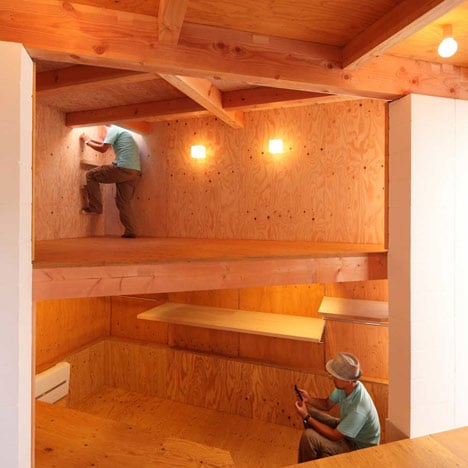
Kokura Tanaka House by Akinari Tanaka, POI, Nawakenjimu and Lapin
Japanese architects Akinari Tanaka, POI, Nawakenjimu and Lapin have completed this diamond-shaped house in Kokura, Japan, with a ledge in one corner for climbing up to the roof terrace.
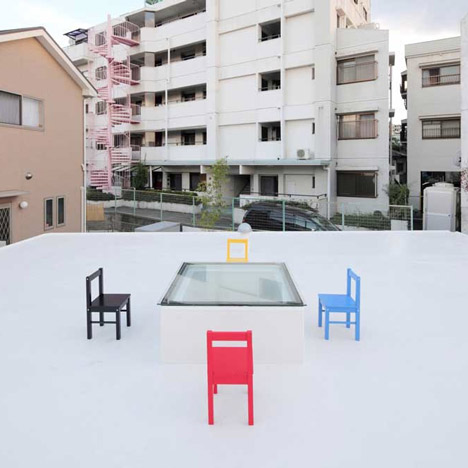
The Kokura Tanaka House is split into quarters by two crossing walls in the centre, creating four equal rooms that each have access to outdoor terraces.
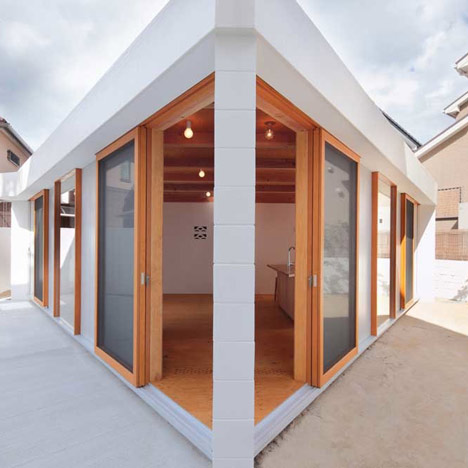
The small plot is surrounded by the perimeter walls of neighbouring residences, which are now painted in the same shade as the new house to make it feel less hemmed-in.
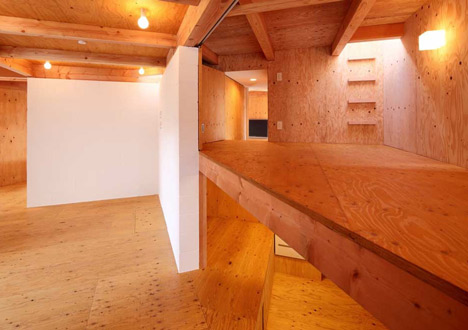
More Japanese houses on Dezeen »
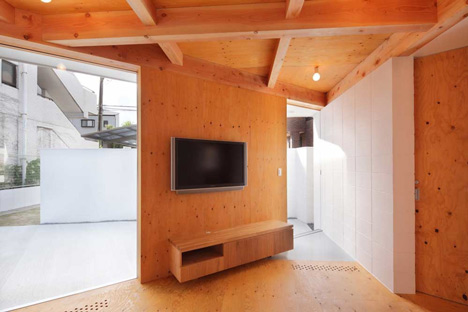
Photography is by Kei Sugimoto.
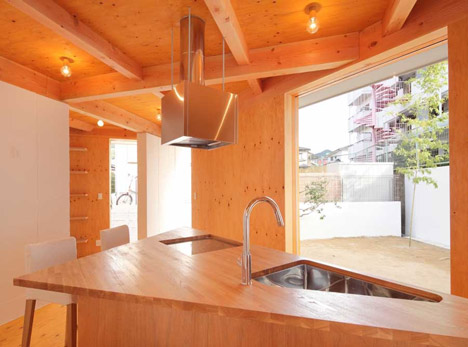
More information is provided by the architects below:
Kokura Tanaka House
This is the project that the client returned to the birthplace after the retirement and rebuilt an old house. He requested sunny one-storied house with good ventilation.
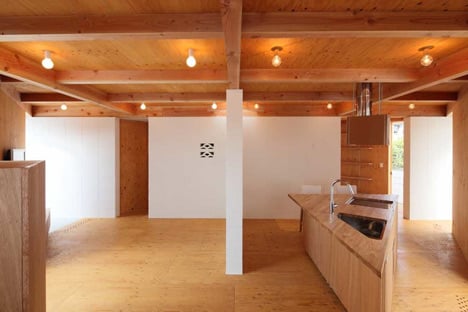
But there was a problem that an erstwhile quiet green residential area was changed into densely built-up area, and moreover neighbour's concrete block wall surrounded his flagpole shape site. And there was a sense of being oppressed.

So we tried the design “Shakuhei”(=Borrowed wall) to turn this bad condition to the advantage. Incorporating beautiful landscape is usual method at "Shakkei", but this project "Shakuhei" is a trial to incorporating neighbour's ordinary concrete block wall. Therefore, we dared to make the house with a concrete block wall.

Firstly, we cut this site into pieces on a cross with concrete block wall. Secondly, we put one roof over the top of the wall. As a result, in all rooms we obtained scenery that our wall and neighbour's wall are seen at the same time.
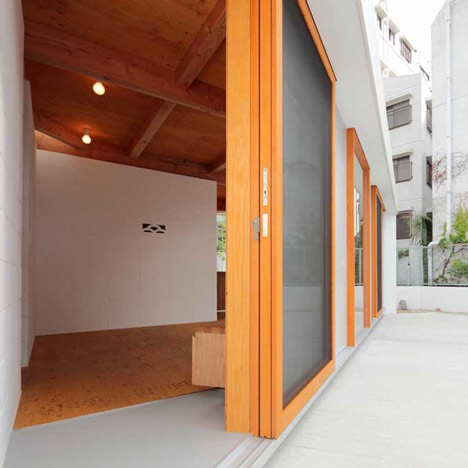
In a word, it is felt that neighbours' walls are own walls. And we feel this house compact but large, because each rooms have a garden.
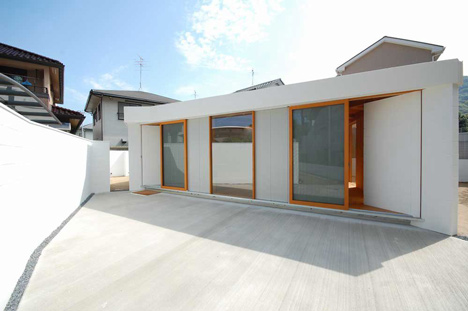
Further, we got a sense of unity and a reflection effect by painting neighbour's wall white with their consent. However, we want not only to borrow the wall from neighbours but also to build the relation of win-win. So that, we secured the neighbor's sunny space with good breeze by making the flat roof terrace and painting it white.
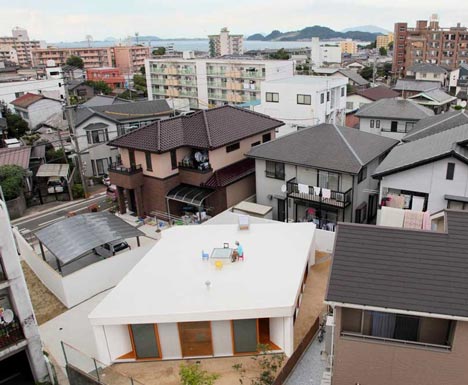
[structure and air conditioning]
Fill-up concrete block structure (=for retaining walls) makes it possible to secure horizontal force by even if it is a straight joint. We planned efficient air conditioning in consideration of loop space. The air-conditioner blows air into air loop duct after taking return air from the center of the house.
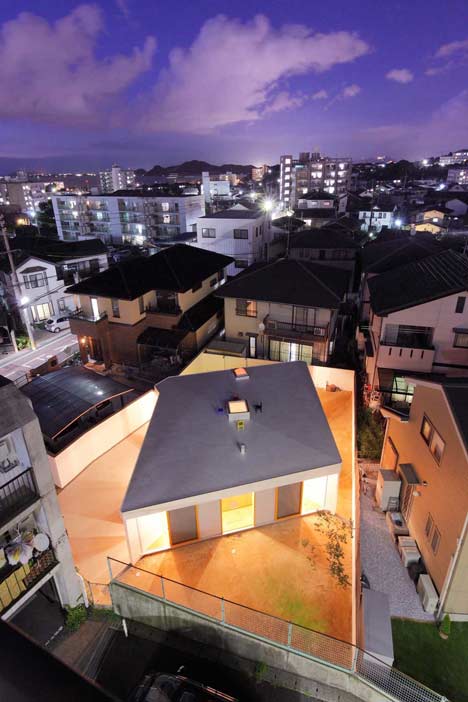
The air inlets are familiar screen blocks in a Japanese town. And the air outlets are simple holes but manual regulation of air volume is possible.
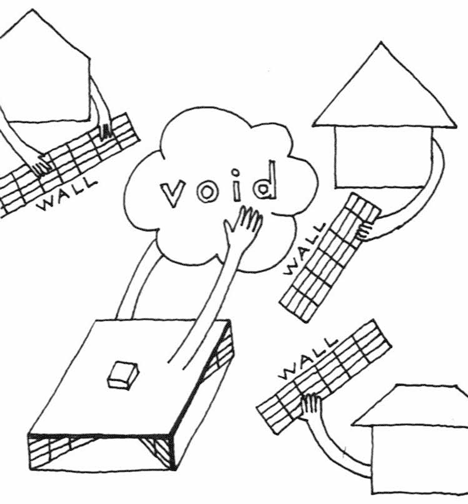
Architects: Akinari Tanaka+POI+Nawakenjimu+Lapin
Location: Kokura,Japan
Project area: 67 sqm
Site area: 247 sqm
Project year: 2009-2010
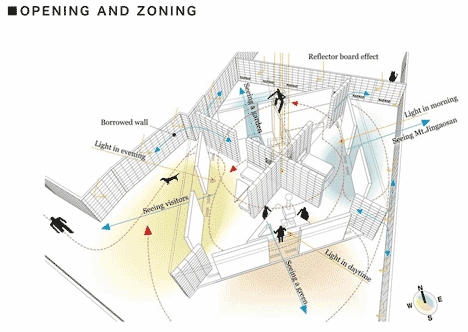
Click above for larger image
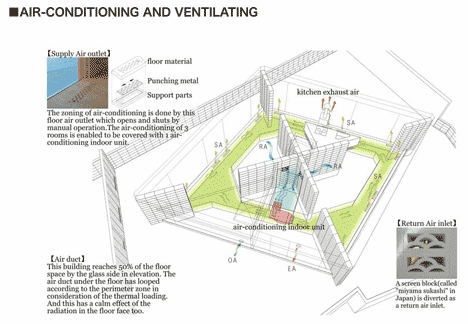
Click above for larger image
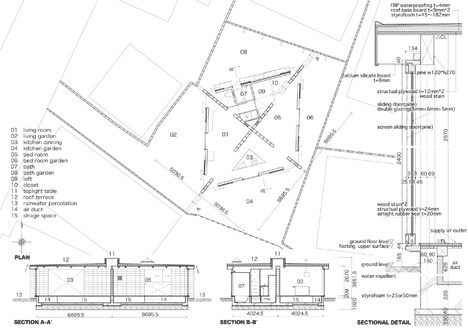
Click above for larger image